第58章
Then they came to resent the principals in a row. Of course the principal, who was thought to be in the wrong, was the most rescnted, but Coleman be-lieved that, after all, people always came to resent the other principal, or at least be impatient and suspicious of him. If he was a correct person, why was he in a row at all? The principal who had been in the right often brought this impatience and suspicion upon himself, no doubt, by never letting the matter end, continuing to yawp about his virtuous suffering, and not allowing people to return to the steady contemplation of their own affairs. As a precautionary measure he decided to say nothing at all about the late trouble, unless some one addressed him upon it.
Even then he would be serenely laconic. He felt that he must be popular with the seven students. In the first place, it was nice that in the presence of Marjory they should like him, and in the second place he feared to displease them as a body because he believed that he had some dignity. Hoodlums are seldom dangerous to other hoodlums, but if they catch pomposity alone in the field, pomposity is their prey.
They tear him to mere bloody ribbons, amid heartless shrieks. When Coleman put himself on the same basis with the students, he could cope with them easily, but he did not want the wild pack after him when Marjory could see the chase. And so be rea-soned that his best attitude was to be one of rather taciturn serenity.
On the hard military road the hoofs of the horses made such clatter that it was practically impossible to hold talk between the carriages and the horsemen without all parties bellowing. The professor, how-ever, strove to overcome the difficulties. He was apparently undergoing a great amiability toward Coleman. Frequently he turned with a bright face, and pointing to some object in the landscape, obviously tried to convey something entertaining to Coleman's mind. Coleman could see his lips mouth the words.
He always nodded cheerily in answer and yelled.
The road ultimately became that straight lance-handle which Coleman-it seemed as if many years had passed-had traversed with his dragoman and the funny little carriers. He was fixing in his mind a possible story to the Wainwrights about the snake and his first dead Turk. But suddenly the carriages left this road and began a circuit of the Gulf of Arta, winding about an endless series of promontories. The journey developed into an excess of dust whirling from a road, which half circled the waist of cape after cape.
All dramatics were lost in the rumble of wheels and in the click of hoofs. They passed a little soldier leading a prisoner by a string. They passed more frightened peasants, who seemed resolved to flee down into the very boots of Greece. And people looked at them with scowls, envying them their speed. At the little town from which Coleman embarked at one stage of the upward journey, they found crowds in the streets. There was no longer any laughter, any confidence, any vim. All the spirit of the visible Greek nation seemed to have been knocked out of it in two blows. But still they talked and never ceased talking.
Coleman noticed that the most curious changes had come upon them since his journey to the frontier.
They no longer approved of foreigners. They seemed to blame the travellers for something which had transpired in the past few days. It was not that they really blamed the travellers for the nation's calamity:
It was simply that their minds were half stunned by the news of defeats, and, not thinking for a moment to blame themselves, or even not thinking to attribute the defeats to mere numbers and skill, they were savagely eager to fasten it upon something near enough at hand for the operation of vengeance.
Coleman perceived that the dragoman, all his former plumage gone, was whining and snivelling as he argued to a dark-browed crowd that was running beside the cavalcade. The groom, who always had been a miraculously laconic man, was suddenly launched forth garrulously. The, drivers, from their high seats, palavered like mad men, driving with oat hand and gesturing with the other, explaining evidently their own great innocence.
Coleman saw that there was trouble, but he only sat more stiffly in his saddle. The eternal gabble moved him to despise the situation. At any rate, the travellers would soon be out of this town and on to a more sensible region.
However he saw the driver of the first carriage sud-denly pull up boforg a little blackened coffee shop and inn. The dragman spurred forward and began wild expostulation. The second carriage pulled close behind the other. The crowd, murmuring like a Roman mob in Nero's time, closed around them.